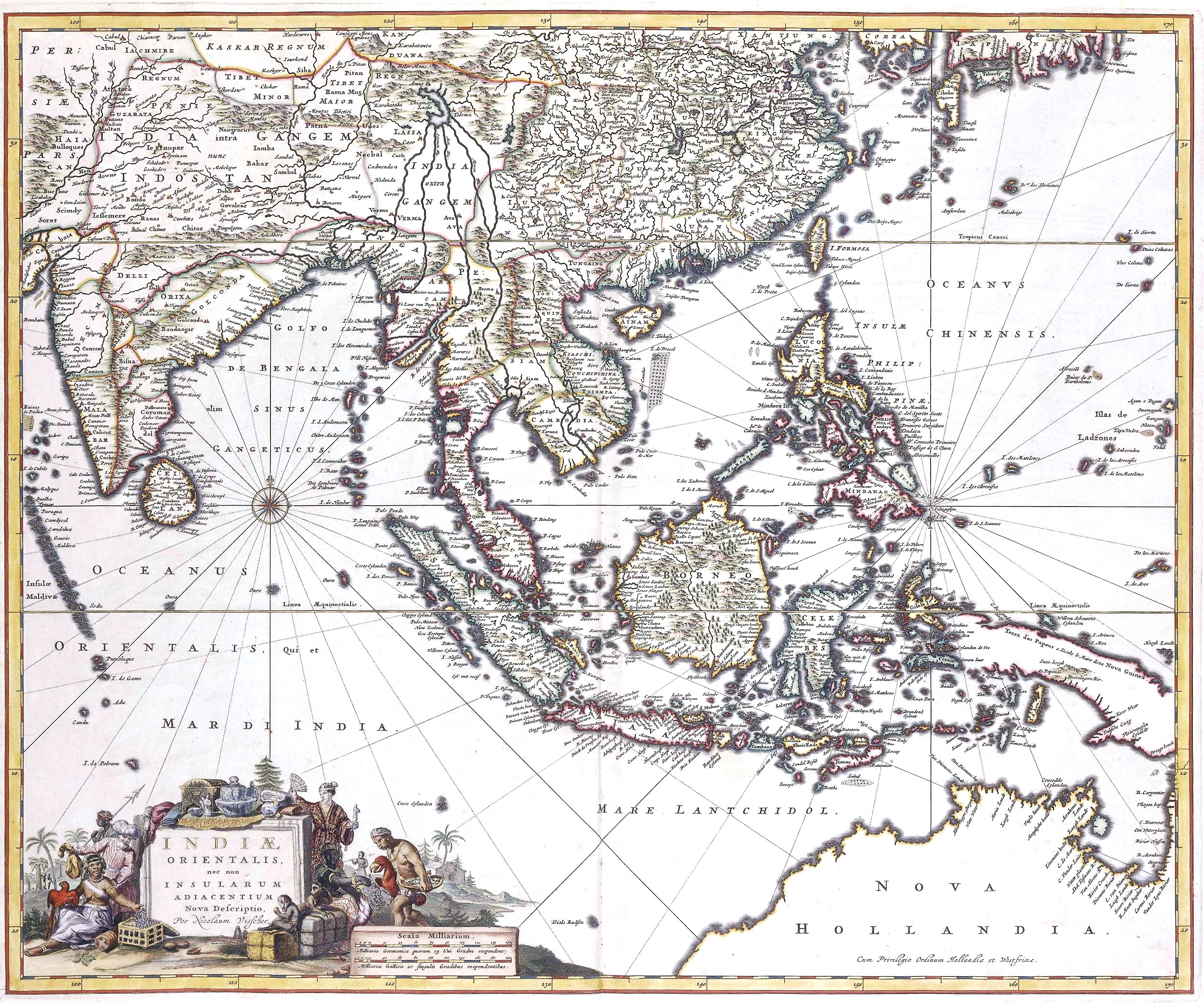The Story of Indonesia
The Story of Indonesia:
Colonialism, Nationalism, and Independence
"Look at a map of the world. Look at the great mass of islands that trails from the underbelly of mainland Southeast Asia.
Squint, and you won’t be able to see the red lines marking the political boundaries. This is the Archipelago, and this is its story."
– Tim Hannigan, "A Brief History of Indonesia: Sultans, Spices, and Tsunamis."
Foreword
Acknowledgements, etc.

Indiae Orientalis, 17th century map by Nicolaes Visscher II
• • •
Throughout my life I've been fascinated with my home country of Indonesia. A vast republic with incredible diversity and unending contradictions that has a long and rich history stretching back more than a thousand years. When I finally got myself invested into alternate history, one of the things I set out to do was to write an alternate history focusing on the story of Indonesia. There were many attempts at doing this, with many interesting ideas. My first attempt at such a timeline was written on the Alternate History Wiki and entitled "Demokrasi Liberal," which was a timeline where Indonesia's brief experiment with democracy in the 1950's doesn't end in catastrophe and results in a chaotic democracy. I eventually saw several significant flaws in the timeline and it was eventually abandoned. Still, I continued to work on other projects also on the same topic, the survival of Indonesia's unstable democracy.
There are many other variants of "Demokrasi Liberal" that I worked on. Including "Father of Parliament" and "Tanah Air," the latter also being my first attempt at writing on this site. Eventually I collaborated with The Man from Gianyar to create the "Garudaverse." But finally, after taking a break from alternate history for a few months to deal with personal issues, I've returned and decided to finally hammer out a new timeline. One that combines my plans from my old timelines with fresh ideas and new insight I've learned since I began writing on that fateful day in June 2021. Now I would also like to take a moment to take a moment to thank all of those who have helped me write this timeline, both directly and indirectly. In particular, Firststooge, who has given me a number of sources and advice, and The Man from Gianyar for all the help with writing. Thus, I present to you, the Story of Indonesia.
• • •
Last edited:

